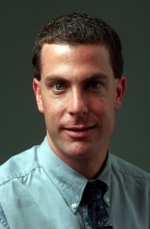Conservation Subscribe
A selection of initiatives, blogs, resources and communities on Jewcology which focus on conservation.
Blogs
Elul: A Time to Start Shifting Our Imperiled Planet onto a Sustainable Path
The Hebrew month of Elul has arrived. It is the traditional time for heightened introspection, a chance to consider teshuva, improvements in our lives, before the “Days of Awe,” the days of judgment, the “High Holidays” of Rosh Hashanah and Yom Kippur. The shofar is blown every morning (except on Shabbat) in synagogues during the month of Elul to awaken us from slumber, to remind us to consider where we are in our lives and to urge us to make positive changes. How should we respond to Elul today? How should we respond when: Science academies worldwide, 97% ...
Go Back to School and Be Green
With many area schools beginning their fall semester between mid-August and early September, many students and their parents will be heading to the stores for back-to-school supplies. Your back-to-school purchases make a huge difference. Here's why: 14 billion pencils are produced every year, many made with wood from ancient forests. Americans use about 31.5 million tons of printing and writing paper each year, requiring 535 million trees (most from virgin tree fiber) and 12 billion gallons of oil to make. The average American consumes about 660 pounds of paper ...
Energy Conservation for your Home: Summer Edition
The weather may be hot and humid, but summer is still a good time to be mindful of the importance of protecting God’s creation, the Earth, by reducing energy waste in your home. Below are a few simple suggestions to get you started. These tips will both help reduce waste and reduce costs. Green Lighting Tips: Do not place lamps near a thermostat. The thermostat senses the heat produced by the lamp which can change how often the air conditioner will run. Use dimmers, motion detectors, and timers on indoor and outdoor lighting Use CFL lightbulbs wherever ...
10 Top Reasons to Read “Who Stole My Religion? Revitalizing Judaism and Applying Jewish Values to Help Heal Our Imperiled Planet”
Who Stole My Religion?: 1. Generates interest and discourse on the future of Judaism and our imperiled planet because of its challenging analyses. 2. Delivers a critical analysis of Orthodox Judaism’s views on climate change and politics. 3. Argues that vegetarianism, and especially veganism, is the diet most consistent with Jewish teachings and is essential to efforts to avert a climate catastrophe. 4. Offers a possible viable solution to the Israeli-Palestinian conflict. 5. Provides a radical approach to reducing terrorism. 6. Discusses how to ...
Throw Out the Cookie Jar …. And Save the Planet
As a lifetime Weight Watcher, I have learned a few tricks. The most helpful to me was this one: Banish red light food from your home...and keep healthy food cut up and ready to eat at the front of your refrigerator in plastic see-through containers. Now what does that have to do with saving the planet? Well, a whole lot. Fracked gas is not healthy for people or the climate. Neither is nuclear-powered electricity. These are red-light energy products, the healthy alternatives being solar and wind energy. Even knowing this, companies profiting from red light dirty ...
Greening Your Travel: Part Two
Summer is here and what better way to honor the environment and the Jewish principle of baal tashchit (do not waste) than by planning your summer travels to be as eco-friendly as possible. Here are a few tips to help as you plan your summer getaway: Use eco-friendly transportation as much as possible: Some options include doing a biking vacation and/or taking public transportation (such as train or bus) to get to your ultimate destination. These alternatives are often cheaper and also reduce your carbon footprint as opposed to travelling by car. Bring your ...
Kosher Palm Oil
Until recently I thought I understood the problem with palm oil. I thought palm oil meant unethical agricultural practices causing the destruction of equatorial rainforests, driving Orangutans to extinction and contributing significantly to climate change. I believed that products where palm oil was listed as an ingredient are worse than those where palm oil is not listed as an ingredient. I understood that environment groups advocated boycotting manufacturers that use palm oil until they substituted with an alternative. And then I visited Melbourne Zoo where I listened ...
The Jewish Imperative of an Animal-Free Diet
Jeffrey Cohan, the Executive Director of Jewish Veg, is coming to Teaneck, NJ. He will be leading an hour-long, interactive presentation at Congregation Beth Sholom on the significance of Tza'ar Baalei Chayim (the Jewish mandate to prevent animal suffering) in our contemporary world. This event begins at 7 pm and is free and open to the public.
Reducing Food Waste in Seven Easy Steps
Statistics show that in the U.S. alone 60 million metric tons of food is wasted each year, of which about 40 million metric tons of it end up in municipal landfills. This represents between 30 to 40 percent of the overall food supply and the single largest component in landfills. It is an important value in Judaism that we not waste resources, including food (the principle of baal tashchit). Below are a few simple steps you can take to personally reduce food waste as you shop. Inventory your food items before grocery shopping—Take stock of what you already ...
SACRED EARTH, SACRED TRUST
A Day of Prayer & Action for People and Planet. Sunday, June 12 FAITHS RISING FOR PEOPLE & PLANET Sacred Earth, Sacred Trust is a worldwide, multi-faith day of prayer & action for the planet and a call for world leaders to commit to a 1.5 degree limit on global temperature rise. Six months after world leaders reached the Paris Agreement, communities around the world will come together in a day of beautiful commitment and blessing for the earth. 1°C OF WARMING MEANS EVERYTHING The adopted Paris Agreement is an incredible first step, but much of ...
Jews March for a Clean Energy Revolution
On the eve of the Democratic National Convention, as TV cameras turn towards Philadelphia, thousands will march for action to prevent climate catastrophe and present these demands directly to current and future policy makers: • Ban Fracking Now • Keep Fossil Fuels in the Ground • Stop Dirty Energy • Quickly and Justly Transition to 100% Renewable Energy We'll be organizing a group marching together as Jews (of all backgrounds) who want a clean energy revolution! At the 2014 People's Climate March, 400,000 people marched through the streets of New ...
Get Ready for Earth Day
By JEI intern, Maggie McCarthy Though the earth sustains us, its health depends upon our care and responsible use of its resources. Protecting the planet is both a religious and spiritual imperative. The Hebrew phrase l’dor v’dor captures this central command. We must pass on a thriving earth “from generation to generation”. Earth Day provides the perfect occasion to remember our duty to the planet. In attempts to raise environmental awareness, Senator Gaylord Nelson of Wisconsin proposed a day of celebration, instituting the first Earth Day on April 22, ...
Native Plants for Everyone
By guest blogger, Maggie McCarthy, JCRC Environmental Intern While February may seem early to think about gardening, planning ahead in the winter months allows necessary time for creating a healthy and sustainable home garden. Despite the tendency to think of landscaping as purely ornamental, harvesting appropriate plants can bolster the environment and fuel local ecosystems. Giving such thought and care to gardening endeavors enables us to protect and preserve the earth God has given us. When planning your home garden, rather than simply picking the first plants you ...
Chanukah and Vegetarianism
Chanukah and Vegetarianism Jews can enhance their celebrations of the beautiful and spiritually meaningful holiday of Chanukah by making it a time to begin striving even harder to live up to Judaism’s highest moral values and teachings by moving toward a vegetarian (and preferably a vegan) diet. Please consider: 1. According to the Book of Maccabees, some Maccabees lived on plant foods since they were unable to get kosher meat when they hid in the mountains to avoid capture. 2. The foods associated with Channukah, ...
Eco-friendly baby products
If you are expecting a baby or have little ones in your home, you may be wondering how to surround your infant or toddler with products that are environmentally safe. Below are a few suggestions that will help reduce waste (baal tashchit) and keep your baby healthy too. Make your own organic baby food—The safest food for your baby is the same fresh, organic food you eat. Rather than worry about additives in store bought baby food and the waste caused by purchasing all of those little jars, buy a baby food grinder. After pureeing items, you can also make extra ...
Lessons on Activism From the First Two Chapters of Genesis
Here are some of the important lessons on activism that I learned from the first two chapters of Genesis: 1. From Genesis 2:15, “the human being was put into the Garden of Eden to work the land and to guard (preserve) it,” I learned that I should be an environmental activist. This lesson was reinforced by Genesis 1:28, giving human beings “dominion,” because the Jewish sages interpreted dominion as responsible guardianship or stewardship. It is also reinforced by the following midrash (rabbinic commentary on the Torah): “In the hour when the Holy one, ...
Light the Way: Support Pope Francis’ Call for Climate Action
Pope Francis is speaking to world leaders at the UN on September 25 with a simple message for politicians: There is no more time for talk. Now is the time to act on climate change. In his recent encyclical on climate change, Pope Francis wrote that “…faced as we are with global environmental deterioration. I wish to address every living person on this planet.” His impassioned message to humanity was drawn from Torah. He wrote that Genesis 2 teaches us that we are required to respect and protect the dignity of every human being. And Psalm 148 is a ...
Rosh Hashanah Message: Shifting Our Imperiled Planet Onto a Sustainable Path
Rosh Hashanah commemorates God's creation of the world. The “Ten Days of Repentance” from Rosh Hashanah to Yom Kippur is a period to evaluate our deeds and to do teshuvah (repentance) for cases where we have missed the mark. Sukkot is a holiday in which we leave our fine houses and live in temporary shelters (sukkahs) to commemorate our ancestors journey in the wilderness. Hence, the upcoming weeks provide an excellent time to consider the state of the planet's environment and what we might do to make sure that the world is on a sustainable path. When God created ...
Rabbinical School of Hebrew College Issues Environmental Call To Action
“Even though we may understand the story of creation differently from our ancestors, like them we recognize the need to care for God’s holy works with care and diligence." Rabbi Arthur Green, Rector of the Rabbinical School at Hebrew College





